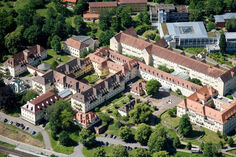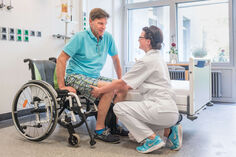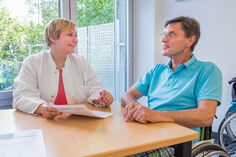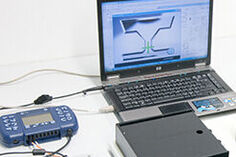Ausschreibungen

We offer internships and master’s/bachelor’s theses (preferably in that order: first internship, second the thesis on the same topic) with a duration of at least 4 (better 6+) months for students with interest in medicine/neurology/rehabilitation in the combination with data science and/or engineering. This may include computer science and engineering and life science.
We are interested in the recovery of people who sustained a spinal cord injury. One of our main datasets comes from a well-curated European registry containing neurological datasets of more than 5000 people with trajectories of 2 to 5 repeated assessments over time. Each assessment contains more than 130 data points, so that this dataset can be labeled with the buzzword “big data”, which is exceptional for such a rare disease. Most of our current projects operate on this dataset (e.g. (Heutehaus et al. 2021; Schuld et al. 2022)).

We foster open source software like Python’s data science stack (pandas, sklearn, matplotlib, etc.)
Previous students have successfully developed their thesis projects towards scientific publications: (Hänselmann et al. 2015; Hommelsen et al. 2017; Keyl et al. 2018; Heutehaus et al. 2021; Schuld et al. 2022; Kombeiz et al. 2020; Schuld et al. 2019).
Students are encouraged to continue this route, although we are well aware that this requires an above average motivation, energy and endurance/stamina –
for both the student but also the supervisor. Some basic skills in scientific reading and writing are helpful, but they can be acquired during the work.
If you are interested in such a fruitful collaboration, please send a meaningful (CV, current credentials) application to Christian.Schuld(at)med.uni-heidelberg.de.
References
Hänselmann, Siegfried, Matthias Schneiders, Norbert Weidner, and Rüdiger Rupp. 2015. “Transcranial Magnetic Stimulation for Individual Identification of the Best Electrode Position for a Motor Imagery-Based Brain-Computer Interface.” Journal of Neuroengineering and Rehabilitation 12 (August): 71. doi.org/10.1186/s12984-015-0063-z.
Heutehaus, Laura, Christian Schuld, Daniela Solinas, Cornelia Hensel, Till Kämmerer, Norbert Weidner, Ruediger Rupp, and Steffen Franz. 2021. “Revisiting the Examination of Sharp/Dull Discrimination as Clinical Measure of Spinothalamic Tract Integrity.” Frontiers in Neurology 12. doi.org/10.3389/fneur.2021.677888.
Hommelsen, Maximilian, Matthias Schneiders, Christian Schuld, Philipp Keyl, and Rüdiger Rupp. 2017. “Sensory Feedback Interferes with Mu Rhythm Based Detection of Motor Commands from Electroencephalographic Signals.” Frontiers in Human Neuroscience 11: 523. doi.org/10.3389/fnhum.2017.00523.
Keyl, Philipp, Matthias Schneiders, Christian Schuld, Steffen Franz, Maximilian Hommelsen, Nobert Weidner, and Rüdiger Rupp. 2018. “Differences in Characteristics of Error-Related Potentials Between Individuals With Spinal Cord Injury and Age- and Sex-Matched Able-Bodied Controls.” Frontiers in Neurology 9: 1192. doi.org/10.3389/fneur.2018.01192.
Kombeiz, Alexander, Christian Schuld, Patrick Jersch, Christoph Maier, and Rüdiger Rupp. 2020. “Development and Validation of a Neural Network for Adaptive Gait Cycle Detection from Kinematic Data.” In DMEA 2020 Abstracts. Berlin. Awarded as 2nd best master thesis.
Schuld, Christian, Viktoria Gavrilova, Laura Heutehaus, Norbert Weidner, Rüdiger Rupp, and Steffen Franz. 2022. “Prediction of Motor Scores from Sensory Scores in the International Standards for Neurological Classification of Spinal Cord Injury (ISNCSCI): Experts versus (Regression) Models - Implications for ISNCSCI’s Motor Levels.” Accepted as award eligible presentation for the annual meeting of the American Spinal Injury Association 2023, Atlanta, Georgia, USA
Schuld, Christian, Yannic Meurer, Steffen Franz, Laura Heutehaus, Norbert Weidner, and Rüdiger Rupp. 2019. “A Comprehensive Visualization Technique Enhancing Clinical Interpretation of Big Data Analysis Results of a Large International Standards for Neurological Classification of Spinal Cord Injury (ISNCSCI) Database.” Topics in Spinal Cord Injury Rehabilitation 25 (Supplement 1): 27–28.



